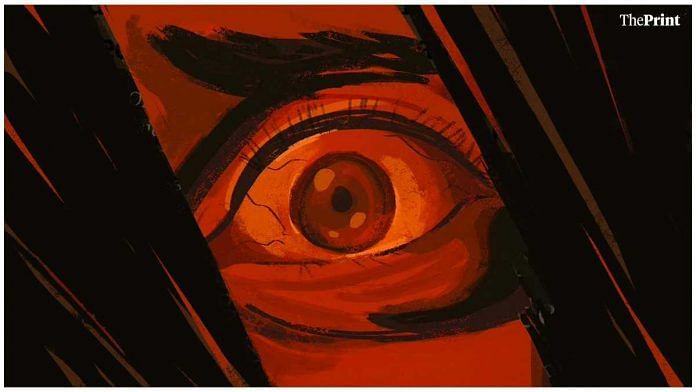The Jharkhand stalking case, where a 16-year-old girl was set on fire because she refused a man’s advances, has shaken India. The accused, who had been stalking her for days, could have been stopped. In Lucknow, a 14-year-old was stalked and held hostage. Her father said, “We initially ignored his acts because we did not want to invite trouble.” While some make headlines, thousands of stalking cases go unreported in India, unless they turn into far more heinous crimes like kidnapping, rape, or murder. Stalking is not considered a ‘serious’ crime, which leads to hesitation about reporting it, and even when the victim confides in the police, the law allows the accused to get bail till the trial.
One case of stalking was reported every 55 minutes in India, according to a 2018 NCRB report. And there seems to be little change four years on. The most recent NCRB report reveals that in 2021, there was only a small decrease in the number of stalking cases – from 9,438 in 2018 to 9,285. But these are just the reported numbers. A 2015 study showed that only one in 13 cases of sexual harassment in Delhi and one in nine in Mumbai were reported to the police. This is often the result of societal stigma around reporting such forms of sexual harassment, and standing up against them is seen as “creating unnecessary trouble”.
At the Centre for Catalyzing Change (C3), we want to change that. We take girls and women to health care centres, police stations and teach self-defence. And the boys are not left behind either.
Also read: ‘Save me papa’, Ankita in flames cried after ‘stalker’ Shahrukh ‘poured petrol, set her on fire’
Stalking isn’t romance
Stalking can have a negative impact on the mental health of the victim, besides curtailing her mobility and confidence. The onus to prevent stalking ironically seems to fall on women, their clothing, timing, interaction with other men, and so on.
A 14-year-old girl from Jharkhand did not confide in her parents about the boy stalking her for months because she feared her parents would force her to drop out of school. For her, safety came at the cost of education. This victim-blaming and urge to limit women’s mobility, freedom and agency take away their safe spaces and discourage them from opening up.
It also does not help that stalking is often romanticised by Indian pop culture. Movies like Toilet: Ek Prem Katha (2017), Phata Poster Nikla Hero (2013), Raanjhanaa (2013), Badrinath ki Dulhania (2017), and so on, put the jilted lover on the pedestal of a hero, sympathising with him and celebrating him as he finally wins over the woman he ‘loves’ because of his persistent, creepy efforts. This, despite clear rejection, anger, and protests from the woman. Ranjana Kumari, director at the Centre for Social Research, said: “There are certain perceptions about stalking cases – they are not taken seriously by the society or by the police. These perceptions are reinforced further in popular culture, especially movies where romantic relationships often begin with stalking.”
Also read: Maximum cases of ‘crimes against women’ in UP, most rape cases in Rajasthan in 2021, says NCRB
Creating a safe ecosystem
We need to create an ecosystem of support where girls and women can voice their concerns, report and fight back without their agency and mobility being curtailed. Young girls need to be exposed to places like police stations to remove the stigma and fear around accessing public support services like filing FIRs.
At Centre for Catalyzing Change (C3), we have been working with thousands of adolescent girls in states like Jharkhand, Chhattisgarh, Bihar, and Odisha to build their agency so that they are informed, enabled, and equipped to take the right decisions. We provide young girls, from ages 11 to 19 years, in and out of school, with crucial life skills like problem-solving, critical thinking, and confidence building. Under this initiative, one of the key aspects is exposure visits to banks, post offices, health facilities, and most importantly, police stations, to make these spaces more accessible. In some of our interventions, we also train girls and women in self-defence.
However, no ecosystem is complete if the boys are left behind. So, for the past 30 years, C3 has also sensitised boys on gender equality and made them understand women’s right to freedom of movement, speech, and choice.
While agency, information and confidence are crucial for girls and women to navigate through society for education, career, aspirations and safety, it is even more important to recognise the need for an ecosystem that supports the mobility and access of girls and women. Every street, every home, every mode of public transport and shared space needs to be non-threatening for girls and women.
Rakhi Miglani is a Senior Specialist at Program Communications, Centre for Catalyzing Change. Views are personal.



